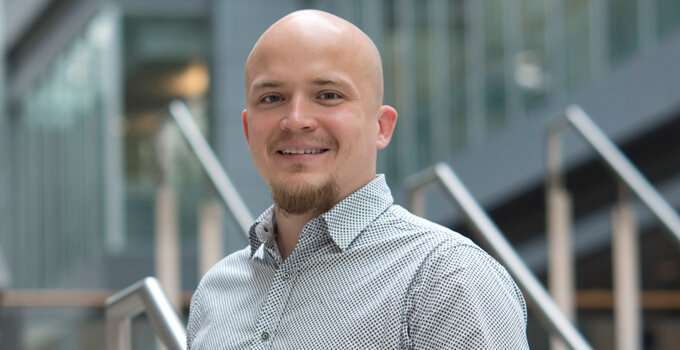New tumor-driving mutations discovered in the under-explored regions of the cancer genome

In an unprecedented pan-cancer analysis of whole genomes, researchers at the Ontario Institute for Cancer Research (OICR) have discovered new regions of non-coding DNA that, when altered, may lead to cancer growth and progression.
The study, published today in Molecular Cell, reveals novel mechanisms of disease progression that could lead to new avenues of research and ultimately to better diagnostic tests and precision therapies.
Although previous studies have focused on the two per cent of the genome that codes for proteins, known as genes, this study analyzed mutation patterns within the vast non-coding regions of human DNA that control how and when genes are activated.
"Cancer-driver mutations are relatively rare in these large non-coding regions that often lie far from genes, presenting major challenges for systematic data analysis," says Dr. Jüri Reimand, investigator at OICR and lead author of the study.
"Powered by novel statistical tools and whole genome sequencing data from more than 1,800 patients, we found evidence of new molecular mechanisms that may cause cancer and give rise to more-aggressive tumours."
The research group analyzed more than 100,000 sections of each patient's genome, focusing on the often-overlooked non-coding regions that interact with genes through the three-dimensional genome. One of the 30 key regions discovered was predicted to have a significant role in regulating a known anti-tumour gene in cancer cells, despite being more than 250,000 base pairs away from the gene in the genome. The group performed CRISPR-Cas9 genome editing and functional experiments in human cell lines to explore the cancer-driving properties of this non-coding region.
"We characterized several non-coding regions potentially involved in oncogenesis, but we've just scratched the surface," says Reimand. "With our algorithms and the rapidly growing datasets of patient cancer genomes and epigenetic profiles, we look forward to enabling future discoveries that could lead to new ways to predict how a patient's cancer will progress and ultimately new ways to target a patient's disease or diagnose it more precisely."
Reimand's research group developed the statistical methods behind this study and made them freely available for the research community to use. These methods have been rigorously tested against other algorithms from around the world.
"Looking into the non-coding genome is really important because these vast sections regulate our genes and can switch them on and off. Mutations in these regions can cause these regulatory switches to act abnormally and potentially cause—or advance—cancer," says Helen Zhu, student at OICR and co-first author of the study. "We've shown that our method, called ActiveDriverWGS, can excavate these regions and pinpoint specific areas that are important to cancer growth."
"Although these candidate driver mutations are rare, we now have the first experimental evidence that one of the mutated regions regulates cancer genes and pathways in human cell lines," says Dr. Liis Uusküla-Reimand, Research Associate at The Hospital for Sick Children (SickKids) and co-first author of the study. "As the research community collects more data, we plan to look deeper into these regions to understand how the mutations alter gene regulation and chromatin architecture in specific cancer types to enable the development of new precision therapies to patients with these diseases."
More information: Helen Zhu et al, Candidate Cancer Driver Mutations in Distal Regulatory Elements and Long-Range Chromatin Interaction Networks, Molecular Cell (2020). DOI: 10.1016/j.molcel.2019.12.027


















